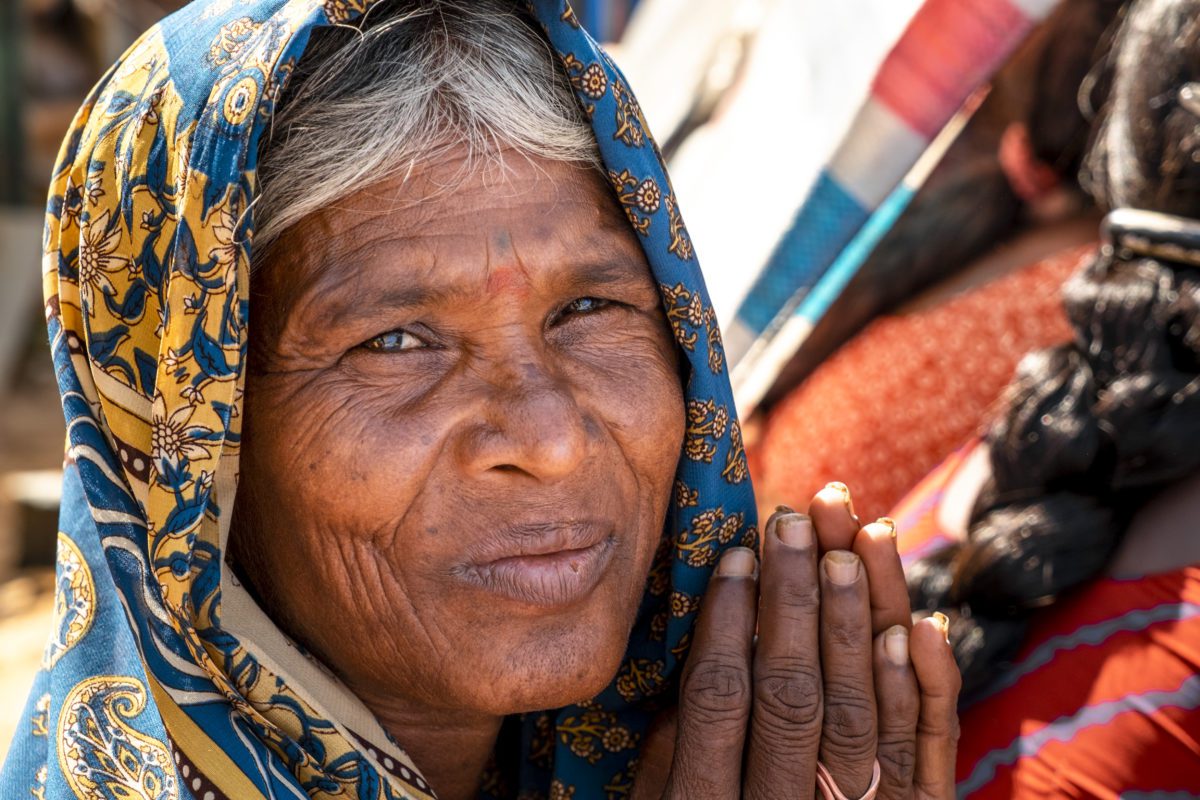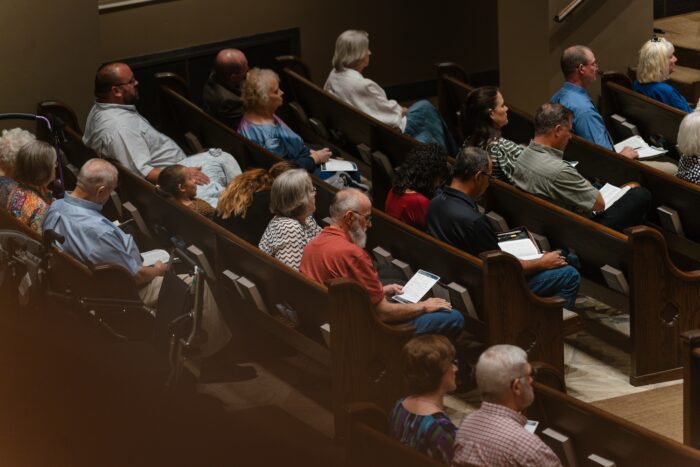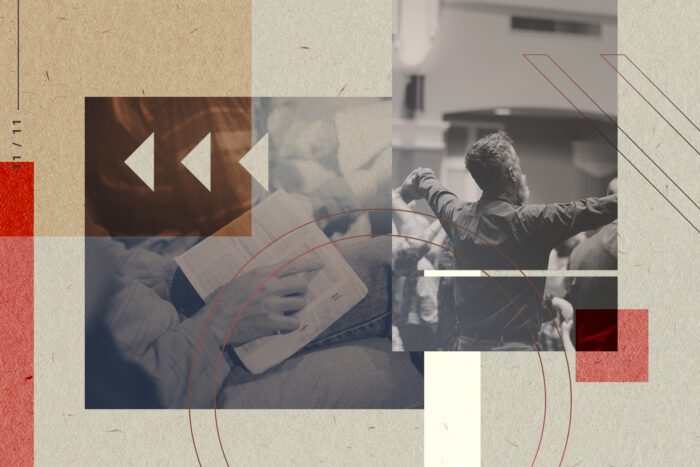I am not a morning person. This usually worked out for me as a missionary in South Asia because the culture is known for its midday starts and late nights. But every Easter, a sliver of the population participated in a countercultural event: a sunrise Resurrection Sunday service.
My family joined South Asian Christians in our small house church to celebrate like many of us do in a Western church context. We sang resurrection songs and listened to a sermon from John 20. But midway through the service, the clang of a neighborhood temple bell two blocks down threatened to intrude on our celebration. I don’t know how the abrupt sound, designed to “wake up” the Hindu god being petitioned, impacted the local believers. But for me, it was a reminder of the cycle that more than a billion Hindus feel caught up in, and how the news of a resurrected Christ would change their life now and for eternity.
What to Expect
My aim is threefold: First, I intend to provide a brief overview of the Hindu concepts of reincarnation and salvation. Then, I will hold up those concepts to the reality of the resurrection so we might appreciate, as our Hindu-background brothers and sisters do, the beauty, joy, and relief of the resurrection. Finally, I’ll close by offering some insights from my missionary engagements with Hindus on how you could approach such conversations with the resurrection in view.
A generous caveat is necessary before diving in: Every Hindu is different and may express their ideas about reincarnation and salvation differently. Hindu sacred texts are variegated and often ambiguous when it comes to such concepts, and Hindus do not systematically read or study their texts as Christian do the Word of God. A Hindu today, especially one in a large city or living outside a South Asian context, is just as likely to have their views shaped by globalization and Western ideals as they are by their sacred texts and traditions. Therefore, my suggestion is to use what follows to gain a base understanding of where a Hindu may be coming from, then ask gracious and curious questions to see where they are now.
The Hindu Hope of Salvation
The Hindu story for salvation is quite bleak. In fact, most Hindus know right out of the gate that there is no chance for them to attain salvation in their current life or even in their upcoming death. Hindus generally believe that every person is born into a specific station in life, or “caste.” Depending on how one behaved in a previous life, a person can be born into one of five castes, with the highest caste being the Brahmin and the lowest being the Dalits (untouchables). The goal for a Hindu is to play the part of their caste. Whether they are in the high priestly caste, the soldier caste, the merchant caste, the laborer caste, or the untouchable caste, their duty is to act in accordance with their assignment. India’s constitution banned discrimination based on caste in 1950, but the system remains a daily part of social and spiritual life throughout South Asia.
As you likely know, Hindus believe in reincarnation, which holds that the soul continues from life to life, ascending and descending the castes until the person fulfills their Brahmin duties perfectly and can thereby achieve moksha, or salvation. Members of any caste other than Brahmin know they must adhere to their station and hope to be born in the next station up. Upon achieving salvation, the soul is liberated from the reincarnation cycle and joined into the universal oneness called brahman. Hindus don’t expect their individual personality or being to survive after achieving moksha the way Christians expect to live forever, as themselves, with Christ in glory. Rather, Hindus expect their unique personhood to dissolve into brahman, like a single raindrop falling back into the ocean.
From one perspective, you could say that the Hindu experiences resurrection countless times. They are born with the duty of their caste, they inevitably execute their duty with imperfection, so their soul is “reborn” into the same or different caste until they can get it right and move up. In my experience in South Asia, this topic does not come up often among Hindus. And why would it? Such a dreary view of a spiritual journey understandably breeds a fatalistic outlook on life. A person has no memory of past lives, and they know they likely will not be the “one” to experience eternal liberation. Why try?
Given the grim and seemingly interminable road to liberation for a Hindu, one can now begin to understand the relief and euphoria a Hindu-background Christian would feel on Resurrection Day. Easter celebrates the news that the God of the universe stooped down, in the Son Jesus Christ, to make the way of salvation known and sure. He modeled and provided the path for eternal life. He demonstrated his power over death by resurrecting Himself. And so, we may now have assurance that He can and will fulfill His promise of resurrecting us, once and for all. There is no more striving. No more futility. No more feeling worthless in the pursuit of liberation. You can be confident that there is not another life station waiting for you upon death, but rather an enduring and personal communion with God. Amid distant clanging temple bells, Hindu-background believers in South Asia know their resurrected King has secured their salvation. Praise be to God.
What Must I Do?
One of my favorite questions in the New Testament is “What must we do?” (John 6:28; Acts 2:37; 16:30), asked by people who had borne witness to something that demanded a response. So, in light of the Hindu view of reincarnation, what must we do?
First, let’s join our Hindu-background brothers and sisters in utter relief and rejoicing that God has made Himself and the path to salvation known to us. Think for a moment about how that reality, in light of the concept of reincarnation, should change our worship. What joy is available to those in Christ!
Second, pray and fast for the Hindus you know. I’m ashamed to admit that I’ve often overlooked or hurried through foundational disciplines like this. But the more time I spend on the mission field, the more helpless I know I am to bring about salvation for anyone. Salvation comes by gracious movement of the Holy Spirit, and no other way. The first and most impactful way I can be involved in that is to beg Him to move on their behalf. Beg Him.
Third, be generously and genuinely hospitable to every Hindu we meet. South Asians, in my experience, are the most warm and hospitable people on the planet. When you welcome them into your homes and lives, you are “speaking their love language,” in a sense Inviting them into your coming and going is the best way to demonstrate the peace Christ has given you and what it looks like to not strive for security.
Finally, go right for it and ask them what they think about Jesus. If they’ve heard of Him, it’s likely that they either believe a Westernized caricature of Him. Or, they might be perfectly willing to place Him on the shelf alongside their other gods. Be patient here. Your aim is not to prove that their other gods do not exist, but rather that Christ is sufficient. Walk them through the Gospels where Christ was sufficient over sickness (Mark 5:25–34), hunger (Mark 8:1–9), demons (Mark 5:1–20), the cosmos (Mark 4:35–41), others’ death (Mark 5:35–42), and His own death (John 20). The Holy Spirit and God’s Word, in time, will help them let go of other failed hopes.
I close this article with a genuine prayer that the Holy Spirit would renew in us the joy of our salvation, made sure through the resurrected Son and good plan of the Father. May our increased zeal and fervent prayer result in the sure and safe eternity of our Hindu friends, coworkers, and neighbors.
Photo courtesy of the International Mission Board (IMB).








